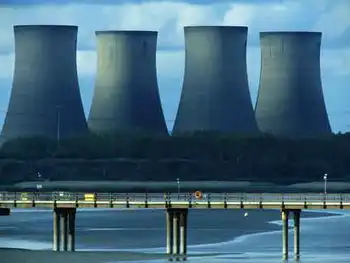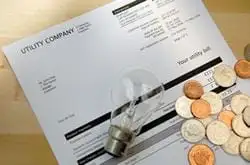Constellation, EDF reach nuclear deal
Under the agreement, EDF will acquire Constellation's 50 percent stake in the Unistar nuclear-development company for $140 million. EDF will be the sole owner of Unistar and its plans to develop the third unit at Calvert Cliffs in Southern Maryland. And the deal will end Constellation's business in building new nuclear plants.
The Calvert Cliffs project was dealt a serious blow when Constellation withdrew this month from negotiations with Obama administration officials over federal loan guarantees deemed crucial for the $9.6 billion project. The news disappointed supporters of the project, which has been praised for the thousands of construction jobs it would create and the carbon-free electricity it would produce.
State leaders, including Gov. Martin O'Malley and U.S. House Majority Leader Steny H. Hoyer, had vowed to work to revive the project. O'Malley met recently with EDF officials. Hoyer's district includes the Calvert Cliffs site. The new nuclear plant was expected to generate 1,600 megawatts of energy, which would help alleviate an expected electricity shortfall in Central Maryland that could start as early as next year.
Hoyer said in a statement Tuesday night he was pleased that "Constellation Energy and EDF have reached a financial and corporate agreement that now allows the Calvert Cliffs 3 project to proceed. I know that the governor, senators, and Maryland delegation join me in welcoming this development and look forward to working with the parties and the administration to move this project forward."
EDF would need to find another U.S. partner to replace Constellation to move forward on the project. Federal law prohibits full ownership or control of a U.S. nuclear plant by a foreign entity.
Seeking to save plans for Calvert Cliffs, EDF had offered to buy out Constellation's stake in Unistar, a business venture aimed at developing new nuclear plants. At the time, EDF said it wanted to keep the prospects for the project alive, and was committed to pursue the development of the project known as Calvert Cliffs 3.
Constellation offered a counter proposal in response, but the matter had been complicated by a dispute between the two companies. EDF was concerned that Constellation was considering exercising an option to sell several of its non-nuclear power plants to EDF for up to $2 billion. EDF warned such a move would result in litigation.
The agreement also settles that dispute. Constellation agreed not to exercise the so-called put option, which was set to expire Dec. 31 and was part of EDF's deal to acquire nearly half of Constellation's nuclear power business two years ago amid a financial crisis.
Instead, EDF will transfer 3.5 million shares it owns, valued around $110 million, to Constellation and give up its seat on the Constellation board. EDF, Constellation's largest shareholder, will still own about 13 million shares of Constellation. EDF will maintain its nearly 50 percent ownership in Constellation's existing nuclear plants.
Under the agreement, Constellation will transfer the land for the proposed Calvert Cliffs 3 as well as two new nuclear sites at plants in New York.
The board of directors of both companies approved the agreement.
In abandoning its negotiations with the federal government, Constellation said the terms of a proposed federal loan guarantee were unreasonable and would add $880 million to the venture's cost.
Even with a loan guarantee in place, EDF would face a challenging environment for building nuclear projects. Natural gas prices have plunged, boosting the attractiveness of gas-fired generators as an electricity source. The failure of climate change legislation that would have penalized carbon emissions is also a setback for carbon-free nuclear energy. Constellation cited those factors, in addition to the $880 million it would have to pay to obtain the loan guarantee, in its decision to pull out of the federal loan process.
Related News

Can Europe's atomic reactors bridge the gap to an emissions-free future?
PARIS - Shaken by the loss of Russian natural gas since the invasion of Ukraine, European countries are questioning whether they can extend the lives of their ageing nuclear reactors to maintain the supply of affordable, carbon-free electricity — but national regulators, companies and governments disagree on how long the atomic plants can be safely kept running.
Europe avoided large-scale blackouts last winter despite losing its largest supplier of natural gas, but industry is still grappling with high electricity prices and concerns about supply.
Given warnings from the International Energy Agency that the coming winters will be particularly at risk from a…





